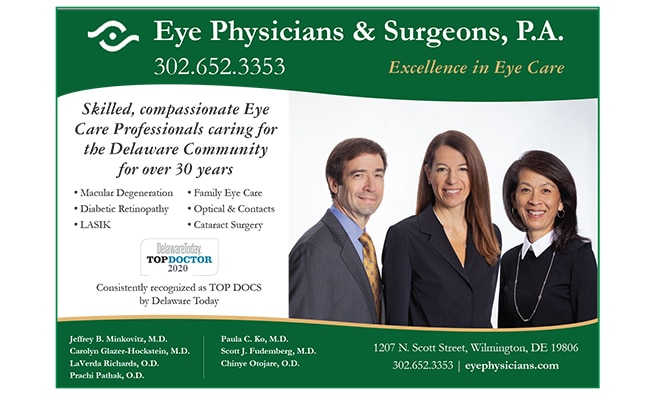Ophthalmology Blog
Questions And Answers With Dr. Jeff Minkovitz, Cataract And Refractive Specialist

By Jeffrey B. Minkovitz, M.D.
Patients considering refractive or cataract surgery frequently ask me many questions about their eye condition and their options for treatment. Today, many more options exist, and asking the right questions helps to ensure the best fit. While each patient may have unique concerns, many questions surface repeatedly. In this article, I have tried to highlight some of the most common as well as some which apply more broadly.
Q: How long do I need to be without my contact lenses before laser vision correction?
A: Patients with soft contacts should refrain from wearing them for at least one week, and preferably two. Hard contacts require one month or more. Contact lens wear can alter the surface of the eye (the cornea), changing both the shape and clarity.
Q: Can patients with cataracts undergo laser vision correction?
A: Patients with significant cataracts should not undergo laser vision correction. Laser vision correction is for the reduction of spectacle dependence. It does not improve vision diminished by cataracts. Furthermore, modern cataract surgery can often achieve the same goals of laser vision correction (reducing dependence upon glasses) while simultaneously improving best corrected vision (the principle goal of cataract surgery). Premium intra-ocular lens implants can also reduce dependence upon reading glasses.
Q: Does laser vision correction cause cataracts or affect future cataract surgery?
A: Laser vision correction does not cause cataracts, but can alter the shape of the cornea, which may affect the refractive outcome of cataract surgery. Because most patients who have undergone LASIK are highly motivated to remain free from glasses, experience with LASIK is helpful in planning and performing these surgeries.
Q: Will laser vision correction help me read without glasses?
A: Laser vision correction is performed to reduce spectacle dependence for distance vision. In patients who are farsighted (see better far than near), there may be some near vision benefit, but patients in their mid-forties or older will typically need reading glasses to see close. One exception is monovision, in which one eye is corrected for distance and the other for near.
Conductive keratoplasty (NearVision CK) is a procedure for improving reading vision in patients who do not need distance glasses
Q: Can cataract surgery reduce my need for glasses?
A: The principle goal of cataract surgery is to restore clear vision in patients experiencing vision loss from cataracts. Advances in surgery, as well as attitudinal changes in patients and surgeons, have increased the emphasis on “enhanced vision” – improving visual performance beyond what may have been present even before cataracts developed. New technology has allowed better, safer surgery with speedier recovery. New implant designs have allowed reduction in “optical aberrations,” resulting in improved performance. Better measurements have allowed more predictable refractive outcomes (reducing nearsightedness and farsightedness). And premium intra-ocular lenses can reduce astigmatism and provide spectacle freedom for near and distance vision simultaneously. For further information or to schedule an appointment please call 302-652-3353 or visit www.eyephysicians.com
Jeffrey Minkovitz, MD is an ophthalmologist with Eye Physicians and Surgeons in Wilmington, specializing in cataract surgery, laser vision correction, and corneal diseases. He trained at Harvard, University of Massachusetts, Washington University, and Johns Hopkins’ Wilmer Eye Institute. He participated in the early research on PRK laser vision correction which led to FDA approval in 1994, performed the first Delaware laser treatment in 1995, and has since performed thousands of eye surgeries. Recognized for several Delaware “firsts,” in addition to laser vision correction, Dr Minkovitz introduced near vision CK (to reduce the need for reading glasses), DSAEK, DMEK and DALK (less invasive methods of corneal transplantation), and laser assisted cataract surgery. Dr Minkovitz is on staff at Christiana Care, and is co-founder of the Center for Advanced Surgical Arts, where he serves on the medical advisory board. In 2016, he founded Laser Vison Delaware, the First State’s newest laser vision correction center with the latest advanced technology. Dr Minkovitz has been a speaker at the annual meeting of the American Academy of Ophthalmology, and received the Outstanding Teaching Award from residents at Wilmer Eye Institute. He has been voted by his peers a Top Doc in Ophthalmology in Delaware Today Magazine for more than 8 years, most recently in 2019.
For further information or to schedule an appointment please call 302-652-3353.


